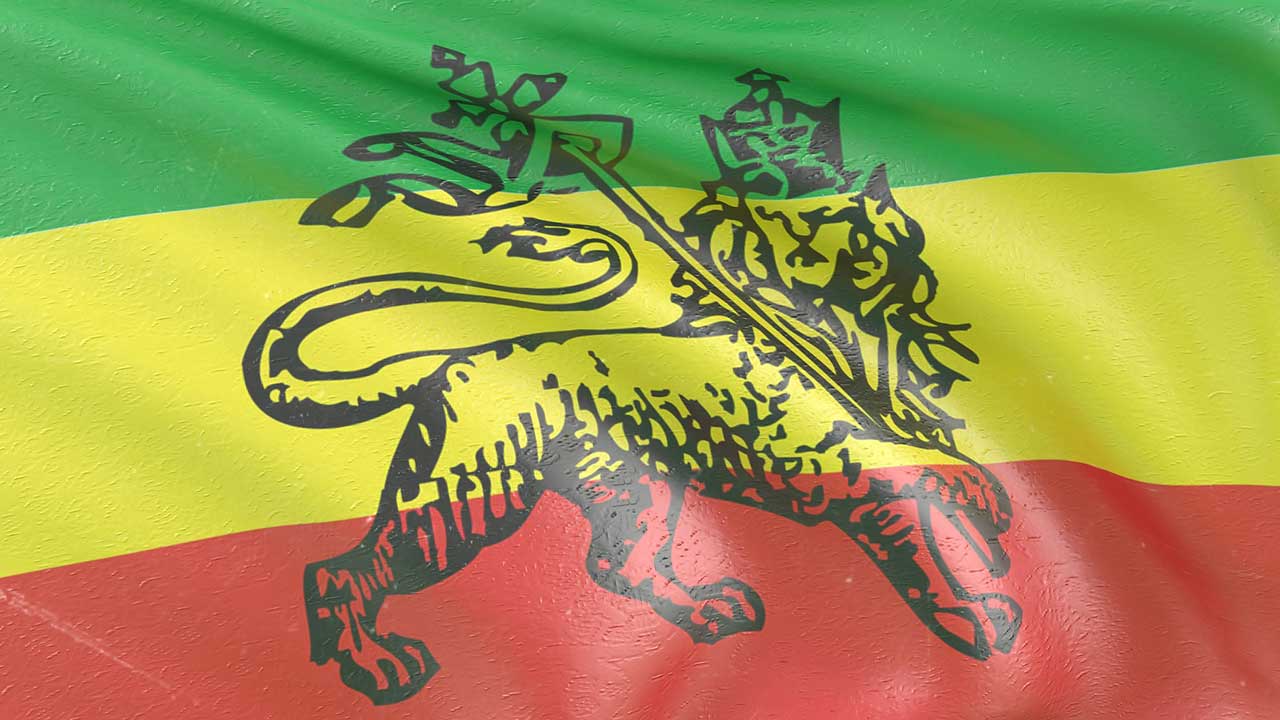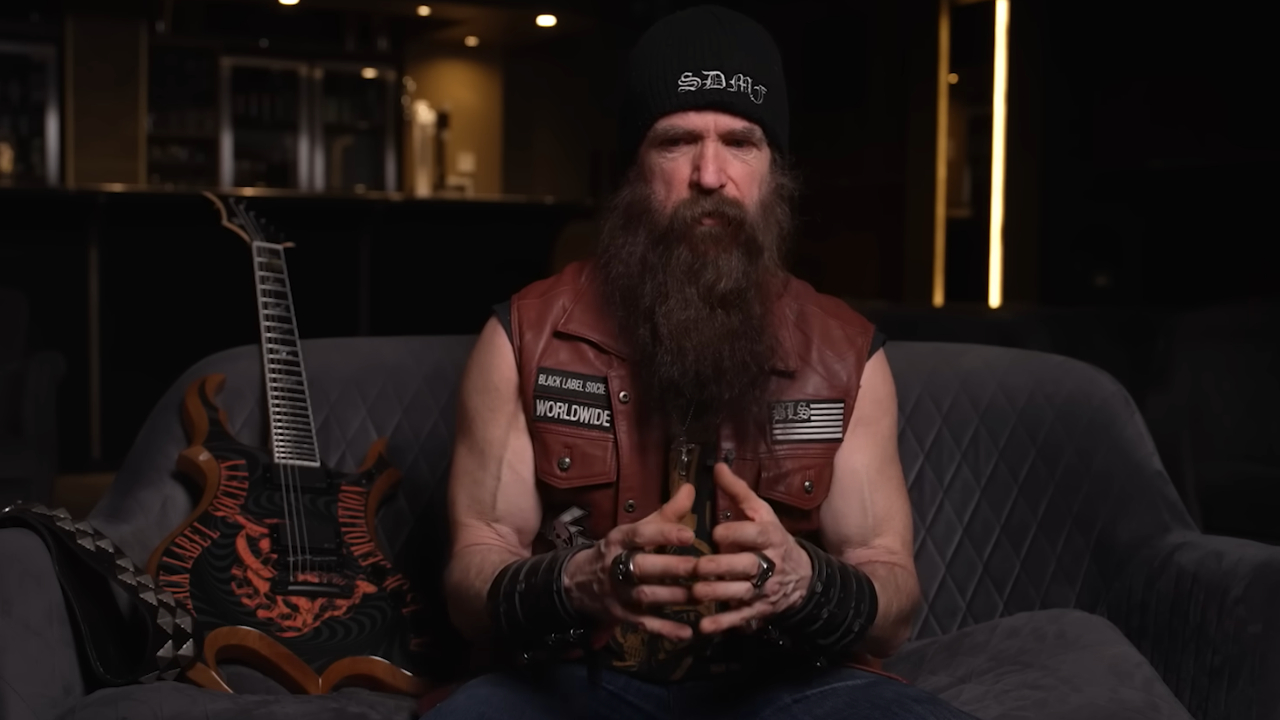17 rock-reggae crossovers that work... and three that don't
Rock and reggae are awkward bedfellows at best, but sometimes it really, really works

Select the newsletters you’d like to receive. Then, add your email to sign up.
You are now subscribed
Your newsletter sign-up was successful
Want to add more newsletters?

Every Friday
Louder
Louder’s weekly newsletter is jam-packed with the team’s personal highlights from the last seven days, including features, breaking news, reviews and tons of juicy exclusives from the world of alternative music.

Every Friday
Classic Rock
The Classic Rock newsletter is an essential read for the discerning rock fan. Every week we bring you the news, reviews and the very best features and interviews from our extensive archive. Written by rock fans for rock fans.

Every Friday
Metal Hammer
For the last four decades Metal Hammer has been the world’s greatest metal magazine. Created by metalheads for metalheads, ‘Hammer takes you behind the scenes, closer to the action, and nearer to the bands that you love the most.

Every Friday
Prog
The Prog newsletter brings you the very best of Prog Magazine and our website, every Friday. We'll deliver you the very latest news from the Prog universe, informative features and archive material from Prog’s impressive vault.
Reggae’s occasional adoption by rock has had its ups and downs. While the genre found a natural partner in punk rock, with both reggae and punk sharing interests in social issues and incendiary polemics, it could make an awkward bedfellow with more classic rock.
It means there have been those – and we’re looking at you Led Zeppelin – who have struggled to convince they are anything more than tourists visiting reggae as they might a Caribbean island. But, look a little harder, and there are plenty of brilliant rock reggae fusions.

1. Rolling Stones — Hey Negrita (1976)
Keith Richards found a likeminded reggae fan when Ronnie Wood joined the Stones, and the pair worked on Wood’s Latin-reggae riff with drummer Charlie Watts. They achieved that rarest of things: a white classic rock band having a credible stab at reggae.
2. Graham Parker — Don’t Ask Me Questions (1976)
A man out of place, Graham Parker was a precursor to punk, new wave and greatly inspired Paul Weller but was deemed to traditional to fit in. Don’t Ask Me Questions was one of his few hits, a soulful reggae diatribe against a spiteful God that would prove influential to Elvis Costello. Talking of which …
3. Elvis Costello — Watching The Detectives (1977)
Having borrowed Parker’s bassist Andrew Bodnar and drummer Steve Goulding, whose immaculate beat makes this, Elvis Costello delivers a taught rock reggae classic. Inspired by repeated airings of The Clash’s debut in an all night listening session.
4. Bob Marley — Punky Reggae Party (1977)
Not strictly rock reggae, but a response from reggae’s grand icon Bob Marley to British punk’s adoption of the sound. Delighted that The Clash were covering Junior Murvin’s Police And Thieves, Marley namechecks The Jam, The Damned, The Clash and the new wave movement to return the favour.
5. The Clash — White Man In Hammersmith Palais (1978)
Beginning with Joe Strummer scowling at the mainstream reggae he had mistakenly gone to see at the Hammersmith Palais, then growing into a scathing attack on UK race relations over a punk reggae rhythm, this remains rock-reggae’s apotheosis.
Sign up below to get the latest from Classic Rock, plus exclusive special offers, direct to your inbox!
6. Pere Ubu — Heaven (1976)
Infused with a pulsing laser-bream synth, Heaven was an early Pere Ubu b-side which – in 1978 – struggled for attention. Mournful, sparse and wilfully weird, it is probably the sole representative of a one-off genre: art-punk-reggae (though Talking Heads might argue that point).
7. Devo — (I Can’t Get No) Satisfaction (1978)
Almost completely unrecognisable from the Rolling Stones original – and reggae only in its rhythm guitar track – this gleeful deconstruction was part of the Q: Are We Not Men? A: We Are Devo! album that placed Devo at new wave’s centre.
8. The Ruts — Jah War (1980)
Inspired by the police severely beating Clarence Brown, manager of fellow Southall band Misty In Roots, at an anti-National Front march, The Ruts’s furious punk dub detailed growing outrage at ‘70s police brutality.
9. The Police — Walking On The Moon
While The Police’s punk credentials were always a little questionable – partly, perhaps, because of their technical proficiency – their early handling of reggae showed an ability to master tight rhythms and mainstream melody. Original lyrics “walking round the room” were never going to cut it, but Walking On The Moon, however…
10. The Pretenders — Private Life (1980)
Later covered by Grace Jones, who was backed by reggae icons Sly and Robbie, this was a sultrier affair in Chrissie Hynde’s hands. Spacey, and airy, Hynde was inspired by the reggae influence in the London punk scene while her floated vocal lends an altogether more seductive feel.
11. The Specials — Ghost Town (1981)
Fuelled by anger at urban decay, wasted youth and inner city violence, there are few songs more haunting and furious at the same time. It became the soundtrack to 1981’s British riots, hitting the top of the charts to utterly capture the mood of anger and impotence in the country at the time.
12. Rush — Digital Man (1982)
Marking the point at which Rush attempted to move on from prog-rock – much to the annoyance of producer Terry Brown – Digital Man finds the Canadians blending their old proggy sounds with a reggae bridge, juddering synths and lyrics about Babylon, Zion and Avalon.
13. Bad Brains — Secret 77 (1986)
Bad Brains’s reputation for ferocious live shows in Washington DC’s influential ‘80s hardcore scene was not always matched by a clear vision on record. But 1986’s third album, I Against I, changed that while the darkly melodic reggae of Secret 77 was a standout.
14. Operation Ivy — Bankshot (1989)
The influence for much of the ‘90s California punk scene that followed – Green Day, The Offspring et al – Operation Ivy, who featured Rancid’s future lynchpins Tim Armstrong and Matt Freeman, were part of Berkeley’s heavily politicised Gilman Street punk scene. A joyous slice of jump up, this instrumental remains their most enduring ska-punk legacy.
15. Rancid — Time Bomb (1995)
Undeniably in thrall to The Clash, Rancid retained enough of their own spirit to carry the rock reggae torch through the ‘90s. Second album, 1995’s … And Out Came The Wolves, featured this – warm-hearted and rough hewn two-step, it finds singer Tim Armstrong in full Joe Strummer mode.
16. The Mighty Mighty Bosstones — The Impression That I Get (1997)
The ‘90s saw an eruption of US ska-punk, some of it wonderful, some of it less so. One of the more accomplished were Boston’s The Mighty Mighty Bosstones, who may not have been reinventing the ska-punk wheel but were at least rolling it along smoothly enough.
17. Lionize — You’re Trying To Kill Me (2011)
Clutch-style heavy blues riffing and reggae are unlikely bedfellows, yet somehow Lionize make it seem like the most natural combination in the world. 2008 album Space Pope And The Glass Machine highlights their reggae-rock sound, but here they perfect it.

And three to avoid...
18. Led Zeppelin — D’Yer Maker (1973)
Inspired by drummer John Bonham attempting to play a doo-wop beat, this somehow morphed into the worst kind of white reggae imaginable. Does nothing you want reggae to do and, for that matter, nothing you would want Led Zeppelin do either. Oh, and it has a dreadful pun in the title. Hooray! For more ‘70s stars murdering the form, see also John Lennon’s Borrowed Time.
19. 10CC — Dreadlock Holiday (1978)
Oddly enough it’s considered a classic – its “I don’t like cricket – I love it” arguably the most famous sport-centric chorus of all time. Yet Dreadlock Holiday’s tale of a white holidaymaker being mugged in Jamaica manages to stereotype the entire Caribbean as a bunch thugs whose sole interest in life is assault and cricket. Which is a bit suspect.
20. Vampire Weekend — Time To Say Goodbye, 2014
You’re an American rock band from New York City, famed for injecting Afrobeat rhythms into your indie. Time To Say Goodbye is an Italian song made famous by the tenor Andrea Bocelli. What it really needs is a synth-reggae 2014 update for a love song covers album, sung (badly) in original Italian and released exclusively by Starbucks.
Tom Bryant is The Guardian's deputy digital editor. The author of The True Lives Of My Chemical Romance: The Definitive Biography, he has written for Kerrang!, Q, MOJO, The Guardian, the Daily Mail, The Mirror, the BBC, Huck magazine, the londonpaper and Debrett's - during the course of which he has been attacked by the Red Hot Chili Peppers' bass player and accused of starting a riot with The Prodigy. Though not when writing for Debrett's.

